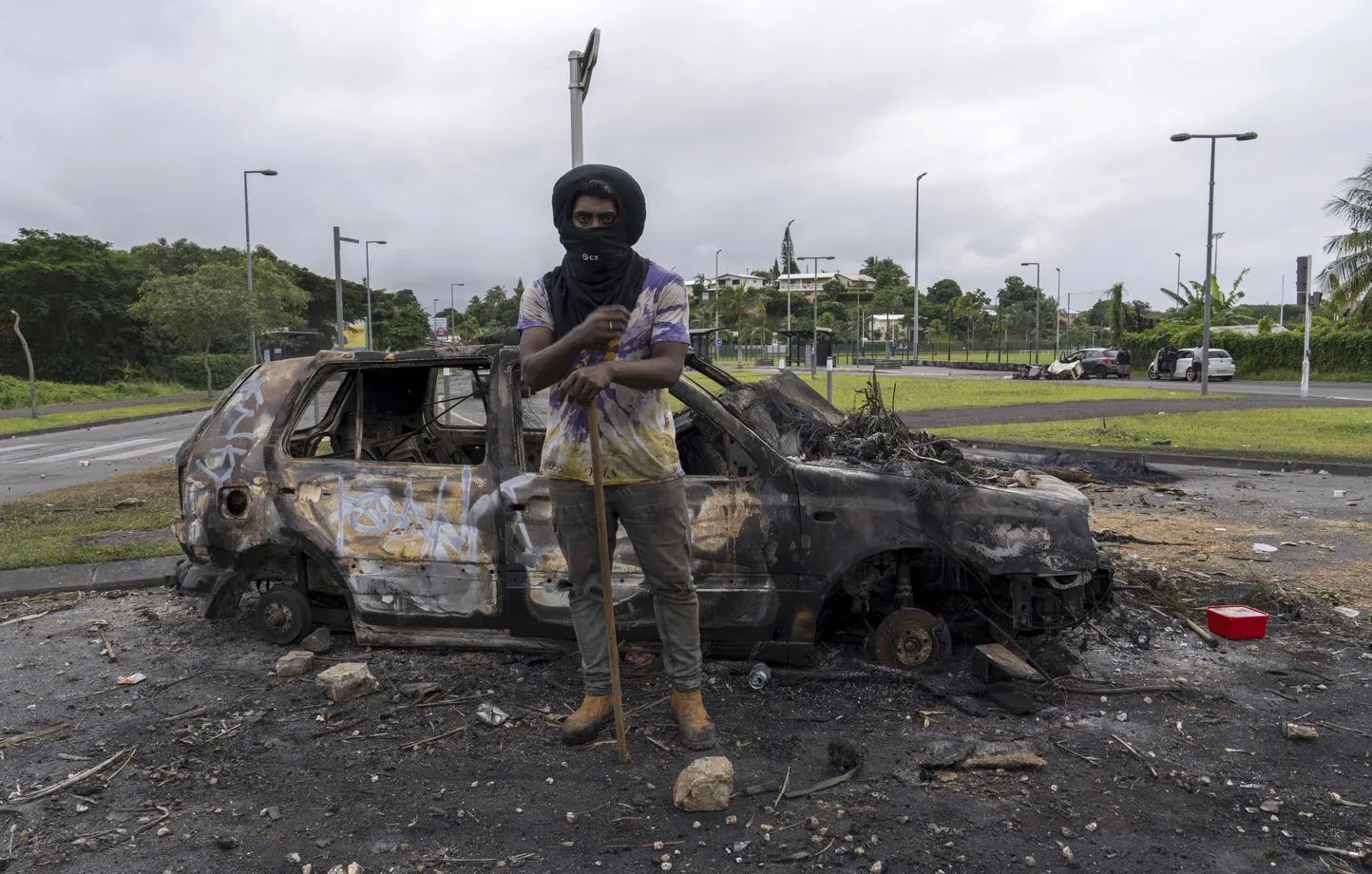International
The French New Caledonia is on the brink of an economical disaster. And Paris is helping it

An economic disaster is surrounding French New Caledonia. Keeping hope alive. Eric Vlaeminck believes he has no other choice. “If we go to bed with a sinking feeling in our stomachs, we’re not going to make it,” says the owner of a company specializing in thermal insulation in Noumea. As a subcontractor to New Caledonia’s metallurgical plants, the company was already suffering from the nickel crisis when unrest last May caused a violent drop in its business.
Three months later, it fears outright liquidation. ‘I still have 26 employees, compared to 85 full-time equivalents last year,’ he says. I’ve already had to give up valuable skills. But now cash flow is no longer enough to cover depreciation and fixed costs.
Little financial support
Eric Vlaeminck is just one of thousands of entrepreneurs on the French arcipelagus of the Pacific who are thinking the worst. Some have already lost everything. 1,200 businesses were looted or burned during the riots-that’s a lot!” says Pierrick Chatel, Secretary General of CPME (the French employers’ association) in New Caledonia. Our members, who make up most of the economic fabric of the island, are in immense distress. All sectors have been affected! And many of them are destitute.
For three months, the reconstruction of New Caledonia has not begun. Order and security have not yet been fully restored. New clashes resulted in the death of another person on August 15, bringing the death toll to 11 since May. “There is no more public transportation, and one road is still cut off by pro-independence demonstrators in Saint-Louis, blocking the homes of 12,000 people and access to the southern metallurgical plant. The economy cannot function under these conditions,” laments Pierrick Chatel.
For businesses, promised financial aid is coming only in an insufficient way. “Of the 16,000 applications submitted to the solidarity fund, half have not yet received a response,” says Xavier Benoist, president of the Federation of Local Industries. Similarly, while the government promised 100 million euros to finance short-time work, only 40 million euros have been disbursed so far, according to David Guyenne, President of the Chamber of Commerce and Industry (CCI).
Insurers, themselves struggling, are also slow to reimburse affected companies. “Out of 3,300 claims for more than 1 billion euros, just 1,200 appraisals have been completed, releasing 120 million euros,” says David Guyenne. The government of New Caledonia estimates that the riots in May caused 2.2 billion euros worth of damage overall.
Hunger riots
Local business people estimate that the island lost between 20 percent and 30 percent of its GDP (8 billion euros a year in normal times) within three months. David Guyenne goes on, “Today, 25,000 employees are affected by full or partial unemployment.” This is more than a third of the 68,000 people employed by the private sector on the island, which has a population of 270,000.
“I can’t think of a single private sector company that hasn’t been affected. But here, the legal compensation for short-time work is 70 percent of the minimum wage,” says Eric Vlaeminck. Those who can are already looking to leave. CCI estimates that between 6,000 and 10,000 people will leave the region this year.
As a result, consumer spending has plummeted, and with it, VAT. In the absence of tax revenue, local government finances are in crisis. According to the latest local government estimates, the deficit will reach 271 million euros (17 percent of tax revenues), but some believe this figure is greatly underestimated. “The local government is broke. It can no longer pay for free medical care and will soon be unable to pay the salaries and pensions of civil servants. The situation is desperate!” argues Nicolas Metzdorf, a Loyalist deputy (Ensemble pour la République) from New Caledonia.
“In Paris they swell with the Olympic Games, and here we are dying….”
Nicolas Metzdorf, MP
“We are seeing the tip of the iceberg, but not what is coming,” warns Eric Vlaeminck. In an article published last week in Les Echos, the CPME even expressed fears that the region may soon face food riots. “And this in France, in 2024,” insist the leaders of the employers’ organization.
They are not the only ones predicting such an outcome in the absence of swift government action. The government has promised 300 million euros in aid, mainly in the form of loans, a sum that local actors consider woefully inadequate. We need to inject between 2 and 3 billion euros into the economy as quickly as possible,” says Xavier Benoist.
Paris informs us that economic development is the province of the local government, but the losses resulted from the state’s failure to protect the people and property in the area! Waiting for a new government further complicates matters. Nicolas Metzdorf does not hide his bitterness: “In Paris, they swell with the Olympic Games, and here we are dying.”
After all, it seems almost clear that the lack of aid from the Macronian motherland is nothing more than a way to punish the citizens of New Caledonia, both the Kanaks who rebelled and the Francophones who criticized the motherland for failing to defend them.
Economic poverty and induced starvation are nothing more than yet another tool of Macron’s government to peigate and punish everyone, natives and French. Because for the president, politics is just repression






